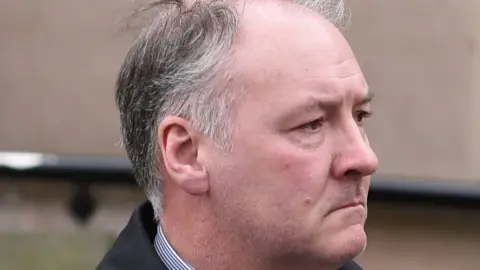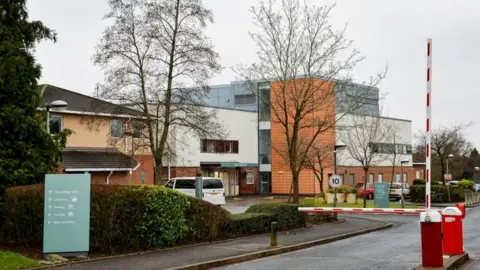Ian Paterson: Letters sent to 5,500 former patients
 PA Media
PA MediaThousands of former patients of the breast surgeon Ian Paterson are being written to by a private healthcare provider.
Paterson is serving a 20-year jail term for 17 counts of wounding with intent by carrying out unnecessary surgery on men and women.
The letters are being sent by Spire Healthcare, after an independent inquiry into Paterson's malpractice recommended a recall of his patients.
Campaigners say they welcome the move.
Paterson's unregulated "cleavage-sparing" mastectomies, in which breast tissue was left behind, meant the disease returned in many of his patients.
Others had surgery they did not need - some finding out years later they did not have cancer.
Paterson was employed by Heart of England NHS Foundation Trust (HEFT), and at the independent Spire Parkway, Solihull, and Spire Little Aston in Birmingham, with more than 11,000 patients.
 PA Media
PA MediaIn September 2017, more than 750 patients treated by Paterson received compensation payouts from a £37m fund.
The independent inquiry led by the Right Reverend Graham James, former Bishop of Norwich, was published in February and made 15 recommendations.
These included a call for HEFT's successor, University Hospitals Birmingham (UHB), and Spire to check all Paterson's patients had been recalled, with the private provider asked to "mirror" NHS arrangements by offering ongoing care, if necessary.
UHB said it had since reviewed all surviving patients, offering them treatment plans where applicable.
Over the summer inquests were opened into the deaths of several of Paterson's former patients.
Spire Healthcare is writing to at least 5,500 patients who were seen by the surgeon and has set up a freephone line for those receiving a letter.
A spokesperson said Spire was doing so now, because of time taken to collect records and delays caused by the coronavirus pandemic.
Deborah Douglas, of Solihull Breast Friends, who underwent "needless" surgery while in Paterson's care, said she welcomed a "robust recall".
She added: "Letters have never before been sent to those people.
"There won't be a physical recall, but they will be offered a virtual meeting initially and then they can arrange any follow-up treatment."

Follow BBC West Midlands on Facebook, Twitter and Instagram. Send your story ideas to: [email protected]
